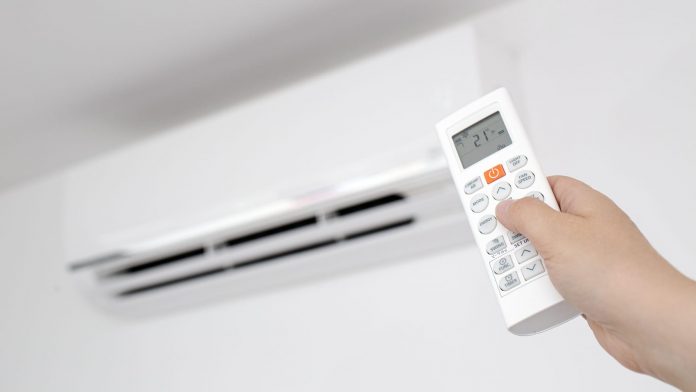In order to be prepared for warmer summers, more and more people are getting air conditioning. A large majority still do without it – partly because of the costs.
According to a survey by the comparison portal Verivox, 19 percent of Germans already have an air conditioning system. That's an increase of 6 percent compared to the previous year. The costs of operating it vary greatly depending on the type of air conditioning unit.
Over two thirds of air conditioning users (69 percent) use mobile devices (monobloc), in which the warm air in the room is directed outside through an exhaust hose. Around a third (31 percent) have opted for permanently installed split devices, in which the fan and compressor are attached to the outside. 81 percent of those surveyed have managed without air conditioning so far, while 19 percent are planning to purchase one.
Many potential buyers cite climate change as the reason for their decision: 53 percent want to prepare for warmer summers. In addition, 40 percent consider other cooling methods to be inefficient, and 30 percent plan to use the device in their home office, which is why they want to feel prepared for high temperatures. For 12 percent of those interested, health reasons play a role.
The main reasons for not using air conditioning are the high purchase and operating costs (49 percent), existing cooling methods such as shading or fans (45 percent) and an already pleasant indoor climate (38 percent).
It is not possible to say in general terms how high the purchase and operating costs are. The required cooling capacity depends on various factors: How strong is the sunlight? How high is the ceiling? How well is the room insulated? Are there roller shutters on the windows or sun protection films on the panes?
Verivox assumes the following acquisition and operating costs: Permanently installed air conditioning systems often cost over 2,000 euros and require professional installation. Annual electricity costs, however, are in the range of 35 to 50 euros, depending on the device. Mobile air conditioning systems (monoblock), which can be set up more quickly and cheaply (from 200 euros), cool less efficiently than split systems and cause higher operating costs. Annual electricity costs can be between 75 and 250 euros, depending on energy efficiency and performance.
Before you buy an air conditioning system, you should have a specialist calculate your cooling requirements. Suppliers have devices of varying performance in their range. A rough rule of thumb is: room volume times 30 gives the required cooling capacity in watts.
The potentially environmentally harmful aspects of air conditioning systems, however, play a smaller role (23 percent). And this despite the fact that air conditioning systems are energy-intensive and contribute to high CO2 emissions. In addition, many models still cool and heat with R32. This coolant is more environmentally friendly than, for example, R22 or R410a. However, if it gets into the atmosphere, it harms the environment 675 times more than CO2. However, there are already a few devices that cool with propane (R290), which is “only” three times as harmful as CO2. This development shows that, despite the increasing demand for air conditioning systems, there are ways to reduce the environmental impact.
One in ten (11 percent) cannot install air conditioning because the landlord prohibits it.
42 percent of respondents who do not have air conditioning and do not intend to buy one can nevertheless imagine purchasing one in the future if the devices become more cost-effective. If climate changes lead to higher temperatures, 41 percent would consider buying one. In addition, 29 percent could imagine purchasing an air conditioning system later if it became more environmentally friendly.
Which device you choose depends on various factors. Split devices consist of an indoor and an outdoor part (the cooling device in the room and the compressor outside), while mobile monoblock devices are equipped with an exhaust hose.
The decisive purchase criteria are cooling performance, power consumption, comfort, noise level and user-friendliness. Energy efficiency, running costs and noise levels during operation vary considerably. You can find detailed information in this article here.
Summers are getting hotter and hotter. Air conditioning can therefore significantly improve the quality of life during the warm months.
Anyone who decides to use an air conditioning system should therefore keep both the financial and ecological impacts in mind. However, by using it carefully and choosing energy-efficient devices, a good compromise can be found between comfort and sustainability.


